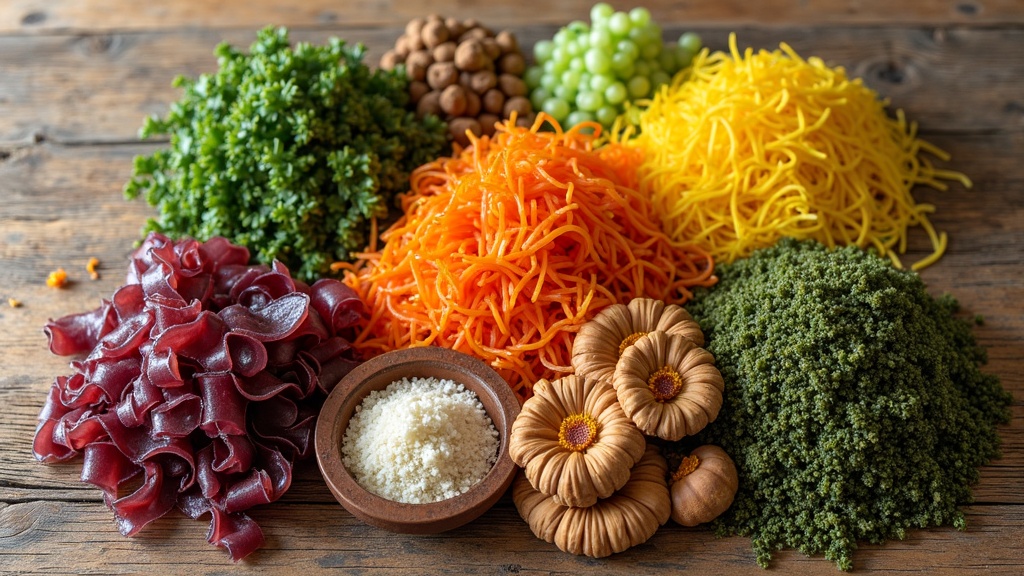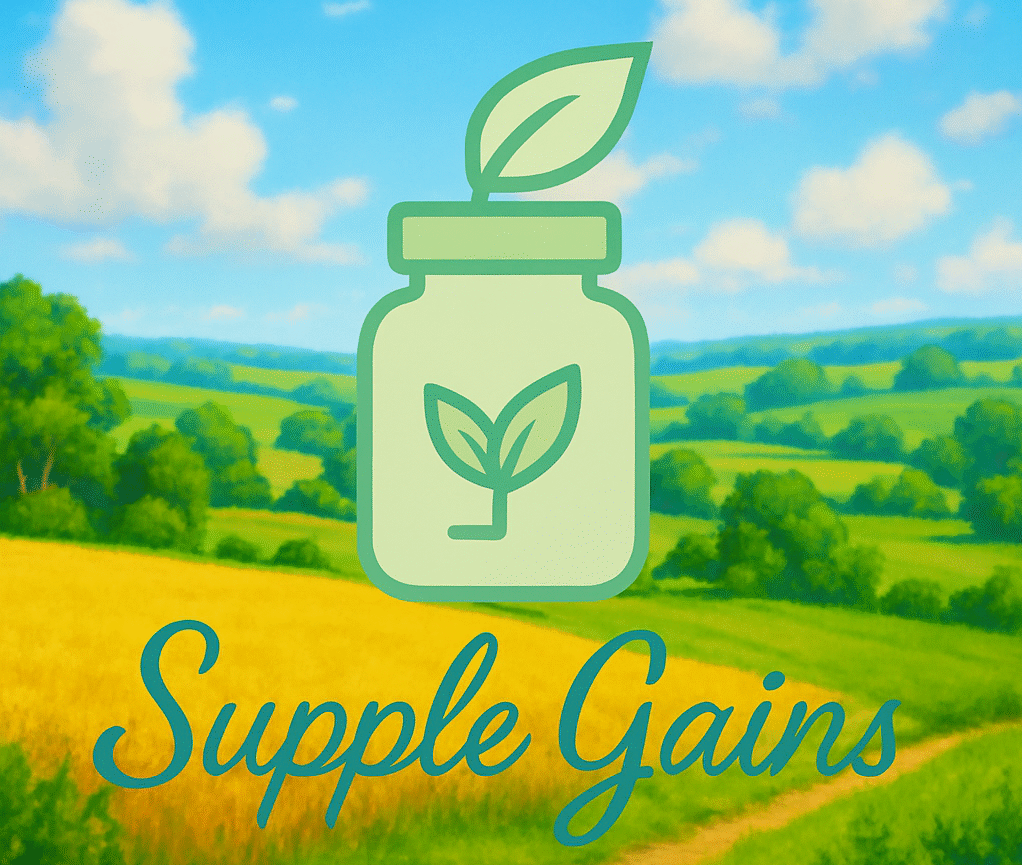More people are looking to plantbased options for their health, the planet, or both.
Vitamin B12 can be a real sticking point for those choosing to avoid animal products.
B12 is needed for energy, nerves, and red blood cells.
But the usual sources are animal derived.
Exciting new research is starting to mix up the conversation around plantbased options for B12.
Here, I’m sharing what you need to know about these discoveries and what they might mean for anyone following a vegan or mostly plantbased diet.

Why Vitamin B12 Matters So Much for Everyone
B12 is the vitamin your body needs for DNA production, red blood cell health, and keeping your nervous system in check.
While most folks get it from fish, dairy, or meat, anyone who doesn’t eat these foods has to work a bit harder to get enough.
If your B12 levels drop too low, you can end up dealing with fatigue, memory trouble, or even more serious issues like nerve damage.
A deficiency can sneak up slowly, especially for people cutting out or limiting animal foods.
That’s why really good, reliable plantbased sources of B12 are something a lot of people want to see.
The Challenge with Finding Plantbased Vitamin B12
For years, the message was pretty simple: eat animal foods or take a supplement.
The reason? Genuine B12 (the biologically active type) is mainly made by certain bacteria, not plants or animals themselves.
Animals just accumulate it because of their diet or gut microbes.
Some plants or fungi get exposed to these bacteria in soil or water, so they may have B12, but usually it’s little, or in a form your body can’t use well.
Seaweed, mushrooms, and some fermented foods have been tossed around as sources, but most never lived up to the hype, at least in studies done up to the last decade.
That’s why these new discoveries are creating a buzz with plantbased eaters and nutrition experts.
Reliable B12 from plants would change the game for vegans and people skipping most animal products.
Recent Plantbased Sources Popping Up in the News
Fresh studies and screen tests are finding more plantbased foods with naturally occurring B12.
Some of the highlights include:
- Edible Algae: Some types like nori (the seaweed you get with sushi), dulse, and certain freshwater algae (spirulina, chlorella) have been spotlighted. Recent lab tests say nori and certain wild harvested algae contain real B12 that your body can use. For nori, up to 2-4 micrograms per 100 grams, which is a solid amount compared to the daily requirement for adults (about 2.4 mcg).
- Fermented Plant Foods: Kimchi, tempeh, and some types of miso have tiny amounts of B12. New fermentation methods and probiotic strains added during production are helping bump up usable B12 in plantbased yogurts and nondairy cheeses.
- Certain Mushrooms: A few wild mushroom varieties like shiitake, black trumpet, and oyster mushrooms have trace amounts of B12 (the real kind, not the inactive type). The numbers aren’t huge, but it adds up if you eat mushrooms often.
- Fortified Foods with Plant Origin: Not exactly a new source from nature, but oat, soy, and almond milks are more frequently fortified with B12 to help vegans and vegetarians close the nutrition gap. While not naturally occurring, it’s a plantbased way to cover your needs.
Some emerging research is even looking at less conventional fermented foods like natto, sourdough breads prepared with special bacterial cultures, or certain pickled vegetables.
While the amounts are still on the smaller side, these options highlight the creativity in this field.
How Well Do These New Sources Really Work?
B12 comes in a few different forms or “analogs,” but only one is easily absorbed and truly active in your system, called cobalamin.
Some plant foods have B12-like substances that don’t give any benefit.
Experts have checked newer algae and wild mushroom samples to see if the B12 they contain can actually bump up human vitamin levels.
Nori keeps showing up as the best edible plant that supplies physiologically active B12, especially when eaten dried (the way you buy it in most stores).
Fermented foods get mixed results; quality and dose matter, plus the type of bacteria or yeast used during processing changes the results.
Recent smallscale trials show that people who snack on dried nori daily or eat fortified nondairy milks can raise their B12 blood levels after a few weeks.
Some studies still say a supplement is the surest bet, but the door is opening wider for future foodbased sources.
The potential for increased access to active B12 through quality plant foods is promising as research continues.
Your Quick Guide to Safe and Effective Plantbased B12
- Focus on Trusted Sources: Right now, dried nori and fortified plant milks or yogurts are your best food bets.
- Watch for the Right Label: If you’re buying spirulina or chlorella, make sure the label says “contains vitamin B12” (not just “B12 analogs” or “pseudovitamin B12,” since that kind won’t help).
- Stay Consistent: A little bit of plantbased B12 every day works better than a big dose once in a while, since your body absorbs small amounts at a time.
- Get Tested Occasionally: If you rarely (or never) eat animal foods, ask your doctor for a simple blood test every couple of years. This helps you spot low levels early and adjust what you eat or supplement as needed.
It can also be smart to doublecheck your B12 intake during key life moments, like pregnancy or after switching up your diet for health reasons.
Things to Consider Before Switching Completely to Plantbased B12
Even though new plantbased sources are being found, there are still a few things to keep in mind.
- Absorption Can Change by Source: Seaweed and mushroom B12 absorption isn’t always as predictable as animalbased forms. It depends on how the food is grown, processed, and even stored.
- Not All Plant Foods with B12 Are Equal: Some farmed mushrooms and pondgrown algae may have little to no active B12, so knowing your supplier helps.
- Supplements Still Recommended: National nutrition groups like the Academy of Nutrition and Dietetics still say a supplement or fortified food is recommended for vegans at least for now, since not all plant sources have been fully verified for longterm needs.
- Mixing Sources Works Well: If you want to rely less on pills, using a mix of nori, fortified drinks, and mushrooms when possible helps cover more bases.
How Processing Affects B12 Levels
The way plantbased foods are handled makes a difference.
Roasting nori at high temperatures may reduce its B12, while freezedrying preserves it better.
The way fermented foods are produced, especially what bacteria strains are used, can mean the difference between a little or a lot of B12 in the final product.
Packaging and Storage
Just like with vitamins in general, light, air, and heat can break down B12.
Sealed packages and airtight storage help make sure you’re actually getting what’s on the nutrition label.
Wild vs. Farmgrown Plant Sources
Wild harvested sea vegetables and mushrooms sometimes have more B12 than their massfarmed versions.
Water quality and soil microbes play a big role, so choosing sustainably sourced wild varieties can give you a better shot at B12 content.
Staying aware of these details is really important to make sure you get the benefits you’re after.
Tips and Tricks for Boosting Your B12 on a Plantbased Diet
Getting creative with food prep and habits can help make the most of these new sources.
- Add Nori to Snacks and Meals: I love sprinkling toasted, crumbled nori into rice bowls, salads, or even popcorn for an umami boost. And you get a hidden B12 perk.
- Try New Fortified Options: Plant milks, yogurts, cereals, and nutritional yeast can now all have added B12 (check the label). Mixing up your products can help add variety and extra B vitamins to your routine.
- Rotate Your Mushrooms: Using shiitake, oyster, and black trumpet mushrooms in stews, stirfries, and even baked dishes is an easy way to get more trace B12.
- Watch Cooking Times: Overcooking algae or mushrooms can fry away the B12, so lower temperatures and gentler heat are way better for preserving nutrients.
Even simple tweaks, like storing seaweed in a cool, dry spot and eating a variety of B12-rich plant foods, can boost your intake.
You do not have to rely only on pills unless needed.
Frequently Asked Questions
Questions I get from readers about plantbased B12 come up pretty often. Here are a few, with my answers:
Question: Can I meet all my B12 needs with just plantbased foods?
Answer:
For now, it’s possible with careful planning and consistent intake of things like nori or fortified products, but most experts still recommend a supplement to be safe if you’re fully vegan.
Question: Is B12 in mushrooms and algae as good as the B12 from meat?
Answer:
Many wild mushrooms and types of nori have the active form of B12, which your body can use just like B12 from meat.
However, not all brands or farmed versions are consistently reliable, so variety and quality are key.
Question: How much nori would I need to eat to get enough B12?
Answer:
Dried nori contains about 2-4 micrograms per 100 grams, but most people eat it in smaller servings.
Even so, having a few sheets almost daily can give your body a steady supply, especially when combined with other sources or a multivitamin.
The Takeaway on New Plantbased B12 Discoveries
There’s a lot of hope in these new plantbased vitamin B12 sources.
Dried nori, wild mushrooms, and newer fermentation methods all mean it’s much easier to find active B12 than it used to be.
With a little label reading and kitchen creativity, eating plantbased comes with fewer nutrition worries, plus a lot more tasty options.
If you’re moving away from animal foods, keeping B12 on your radar is still super important.
Being open to a mix of sources or the occasional supplement can help keep your energy up and your nerves healthy for the long term.
The science is changing fast, so keeping an eye out for additional plantbased options can give a boost to your healthy eating adventure.

This is such an exciting update—B12 has always felt like the one “missing piece” in a fully plant-based diet, so seeing real progress with algae, mushrooms, and fermentation is encouraging. I especially appreciate how you broke down the difference between active B12 and the less useful analogs—it clears up a lot of confusion.
I’m curious: do you think these new plant-based B12 sources could ever become reliable enough that supplements won’t be necessary for vegans, or will they always be more of a complementary option?
“Really good question! Right now, the new plant-based B12 sources (like algae or fermented foods) look promising, but they’re not consistent enough to fully rely on. That’s why supplements are still considered the safest option. In the future, they may play a stronger complementary role, but for now a supplement gives the best peace of mind.
This is such a fascinating and timely read! As someone who follows a plant-based diet, the B12 question is always in the back of my mind. It’s exciting to hear about research into more natural sources beyond just fortified foods and supplements.
I had no idea about the potential in certain mushrooms and algae. While it’s clear that more research is needed, it’s encouraging to see science exploring ways to make plant-based nutrition more complete. This article was a great reminder of why it’s so important to stay informed. Thanks for sharing these new discoveries!